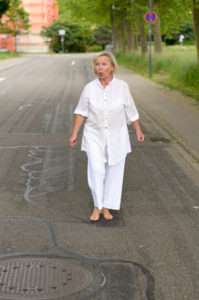
Elopement takes place when a resident of a nursing home leaves the property without supervision or permission. This is similar to the concept of “wandering,” except wandering is typically used to describe this behavior when the resident is still within the grounds of the nursing home.
Due to their advanced age, nursing home residents are often physically or mentally unhealthy. For this reason, development can be extremely dangerous for the resident, even when it only occurs over a short period of time. The longer the resident goes without supervision and protection, the more likely they are to end up with serious injuries.
Elopement is especially dangerous if the nursing home is near an active roadway or a dangerous part of town. Sadly, nursing home residents can even die from elopement.
Why Do Seniors Wander Off?
To understand what elopement in nursing homes is, you must understand the root causes of the issue. In most cases, this behavior is caused by delusions, confusion, restlessness, or rebellion. According to the Mayo Clinic, common causes of elopement include:
- Increased levels of stress
- Fears for their safety or the safety of family members
- Searching for loved ones, food, or the restroom
- Trying to relive old memories or repeating old routines (like going to work)
- Mental health conditions like dementia or Alzheimer’s disease
- Becoming lost due to poor vision or navigational skills, even though they are in a familiar place
For a free legal consultation, call (855) 605-2959
Ways Nursing Homes Can Prevent Elopement
Providing a secure, friendly, and healthy living environment is the most useful tool for fighting elopement in nursing homes. In doing so, nursing homes will be creating an environment that meets all the basic requirements residents need to survive and thrive. The more opportunities residents have to wander off the property, the greater the risk.
The National Center for Biotechnology Information (NCBI) notes that nursing homes must take preventative measures to reduce the probability of elopement, some of which include monitoring staff and incorporating specific staff training. Residents who are at an increased risk of eloping should have the behavior noted in their personal files, and staff members should use extra caution when these residents are under their care. Specific methods for preventing elopement include:
- Creating specific action plans to assist high-risk residents
- Preventing slip and fall accidents that may leave residents disoriented or injured
- Making sure the facility always has an appropriate number of staff members on duty
- Using security cameras, including motion detectors
- Using an alarm system that notifies staff members when doors and windows are opened
- Keeping a close watch on residents at all times
- Using secure locks or keypads and changing them on a regular basis
- Having extra lights to illuminate little-used hallways and stairwells, ensuring that residents do not get lost
How Does a Nursing Home Ensure that a Wanderer Returns Safely?
If an elopement cannot be prevented, it is important that the resident has a safe method to return them back to the nursing home in a timely manner. To combat this issue, Mayo Clinic suggests using identification methods (including ID bracelets), labeling the resident’s clothes, and immediately informing local law enforcement and members of the community as soon as the elopement is discovered.
In some cases, wanderers do not remember who they are or where they are. This presents obvious issues when members of the community are attempting to do a search-and-rescue operation. That is why multiple identification methods are so useful, including pictures and up-to-date physical descriptions.
Click to contact our personal injury lawyers today
Our Nursing Home Abuse Lawyers Fight for Your Loved Ones
You do not have to take legal action by yourself. Our law firm can be there to fight for you at every turn. To get started, contact a High Stakes Injury Law representative today at (702) 605-6671.
Call or text (855) 605-2959 or complete a Free Case Review form

